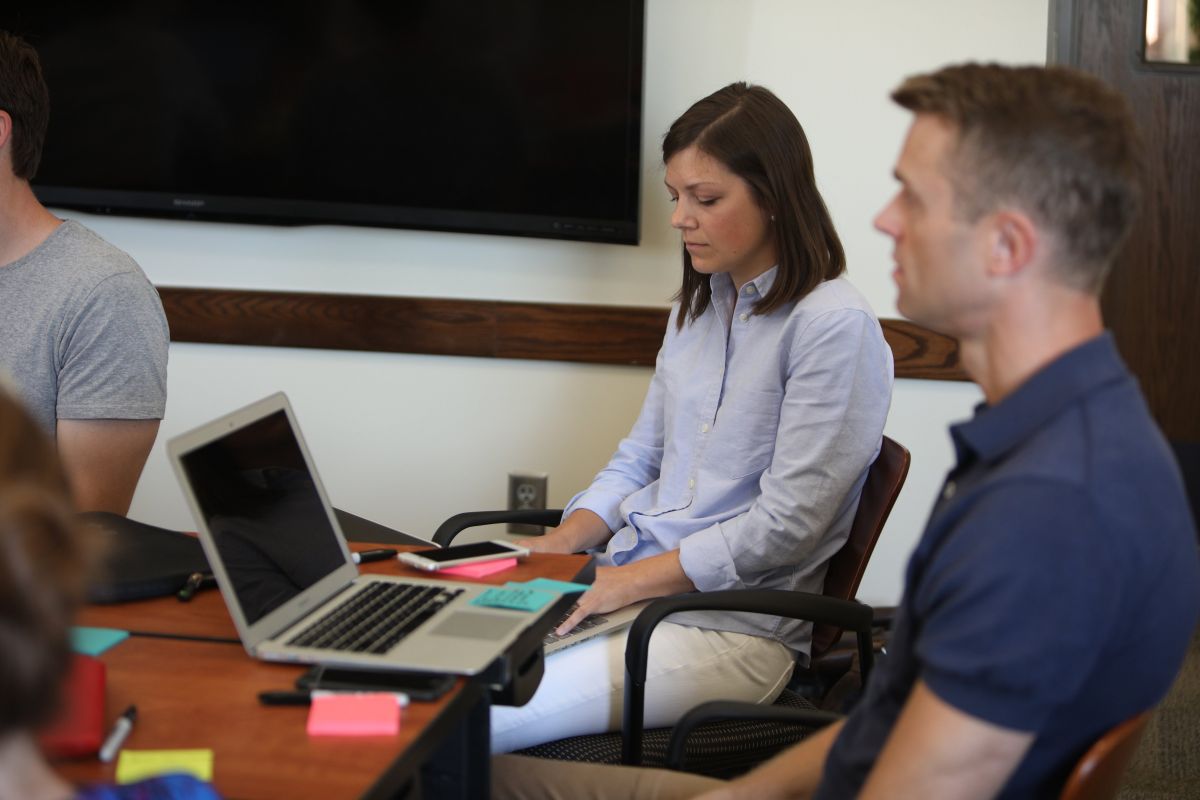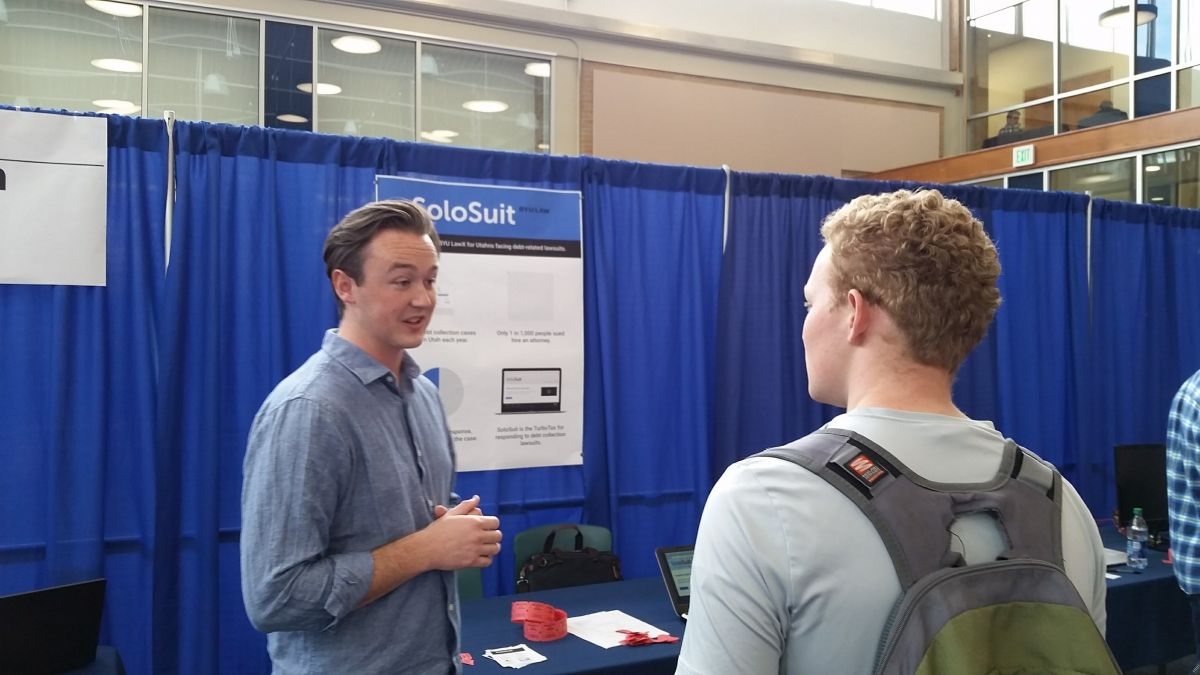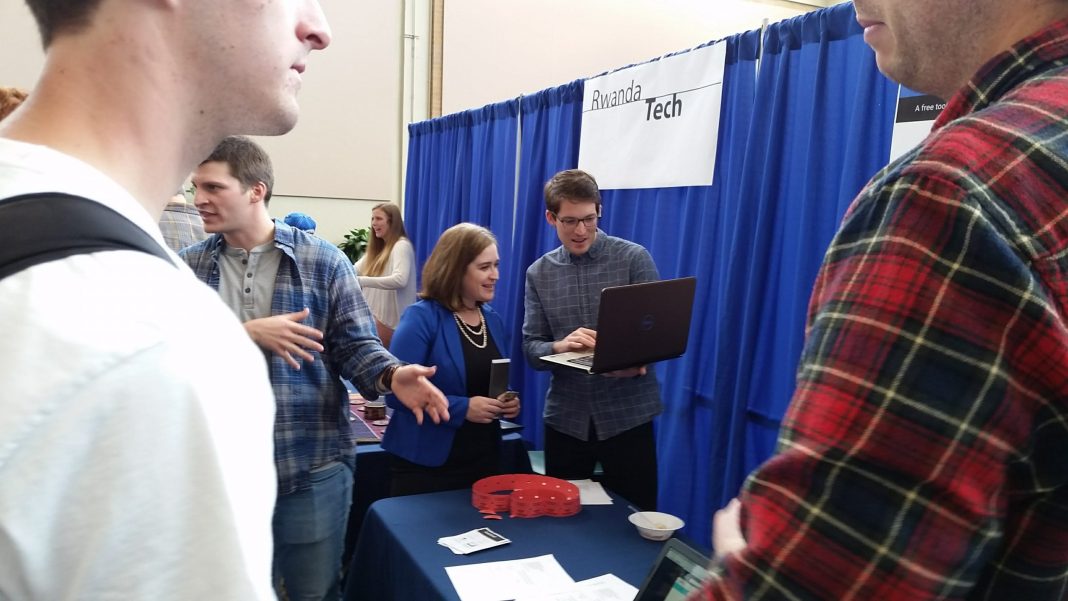Access to justice can be as simple as access to a printer. Literally. That is what Brigham Young University J. Reuben Clark Law School students Tayler Tanner and Erika Nash learned while working on SoloSuit, an automated document assembly software that helps low-income defendants answer a summons and complaint in debt collection cases.
“It is one thing to theorize about the law, but it is an entirely different thing to get down in the weeds and talk to individuals actually impacted by it and understand how you can make things easier for them,” Nash said.
Over the last five years, nearly 98 percent of defendants in over 330,000 debt collection cases in Utah lacked legal representation. Over 80 percent of debtors failed to respond to the complaint and summons, resulting in a default judgment against the debtor. The costs pile up. What starts out as a relatively small debt, $100 or so can quickly grow to $1,000 or more when court fees and attorney fees are added.
To address this problem, Nash, Tanner and other law students participating in BYU’s innovative LawX program, led by attorney Kimball Parker, created SoloSuit, a software that automatically generates an answer to a summons and complaint free of charge. The program coaches users through every step of the process, resulting in an error free, ready-to-file legal document.
“Early in the semester, we realized that debt collection was a legal crisis in Utah,” Parker said. “SoloSuit provides a simple platform for debtors to respond to a lawsuit in as little as 10 minutes.”
Justice remains elusive for some SoloSuit users, however. Under current Utah law, only licensed attorneys are allowed to e-file, meaning that SoloSuit users have to print and deliver their completed answers. Most SoloSuit users only have access to the Internet through smart phones and do not have printers — a poignant example of how low-income individuals can be disadvantaged when facing legal issues.
“I had no idea how difficult this could be for people,” Nash said.

The situation in Utah is just one example of what is known as the access to justice gap – the difference between low-income individuals’ need for legal representation and the resources available to meet that need. According to a report by the Legal Services Corporation (LSC), a federally funded nonprofit organization, seven out of ten individuals eligible for legal aid services faced a civil legal problem last year. In nearly nine out of 10 instances, these individuals had to face the judicial system without the help of a lawyer.
“The law is often unfair to people who cannot afford a lawyer, and LawX is developing solutions that help level the playing field,” said Cami Schiel, a third-year BYU Law student.
SoloSuit is the latest example of how technology is being leveraged to close the access to justice gap. Programs like MDExpungement, which helps individuals expunge eligible criminal records, and SelfHelp Legal, which assists low-income individuals in filing for domestic violence restraining orders, provide scalable legal solutions for people priced out of traditional legal services.
“Even with nonprofit attorneys, we can only reach 20 percent of people who are in need of legal representation,” Matthew Stubenberg, creator of MDExpungement, said. “It is unlikely that nonprofit lawyers will ever get five times more funding. The only way to reach those people is through technology.”
SoloSuit works much like TurboTax. Users answer a series of questions using the summons and complaint they received. For how simple SoloSuit looks, a lot of thought went into the design, wording and navigation. At the outset of the course, IBM designers taught two classes on design thinking, which students used throughout the semester. The students also met with real defendants, probing them to discover pain points in the process of answering a summons and complaint. And, of course, the students considered how ethics rules impacted word choices.
“We had to balance making the platform approachable, but still satisfy what the bar requires,” Tanner said.

The SoloSuit process is one part intake and one part education. Many of the initial users did not understand foundational legal concepts such as complaint, summons, defendant and plaintiff, Nash said. The court system was also completely foreign to the users. With a little ingenuity, the students designed a blue box that points directly to where users can find the information the platform is asking for.
SoloSuit asks users to respond to each allegation in the complaint using one of three possible responses: I Agree, I Disagree and I’m Not Sure. Tanner said users were unsure of how to use these responses and expressed concern about not answering “I Agree.” SoloSuit walks users through each possible answer, empowering them to dispute any mistakes in the complaint.
“You cannot assume anything,” Tanner said. “The platform had to tell the users exactly what they needed to do to complete the program.”

The entire process takes about 15 to 20 minutes, and by the end users have a completed, ready-to-file answer. The next step is printing the answer and filing it with the appropriate court. LawX students at BYU Law are working to overcome the printer issue and are advocating for Utah courts to allow e-filing by pro se defendants.
“I don’t know if we would have recognized that that was a change worth making if we had not gone through the process of making SoloSuit,” Nash said.
In the meantime, LawX will move on to other access to justice issues burdening the Utah legal system. Another group, LawY will take over operations and maintenance of SoloSuit.
Related articles:
This new index tracks law school innovation
Legal Analytics Lab explores the intersection of business, big data and law
BYU Law launches innovative design lab LawX
Tyler Roberts is an editor for The National Jurist. You can follow him on Twitter at @wtylrroberts.


